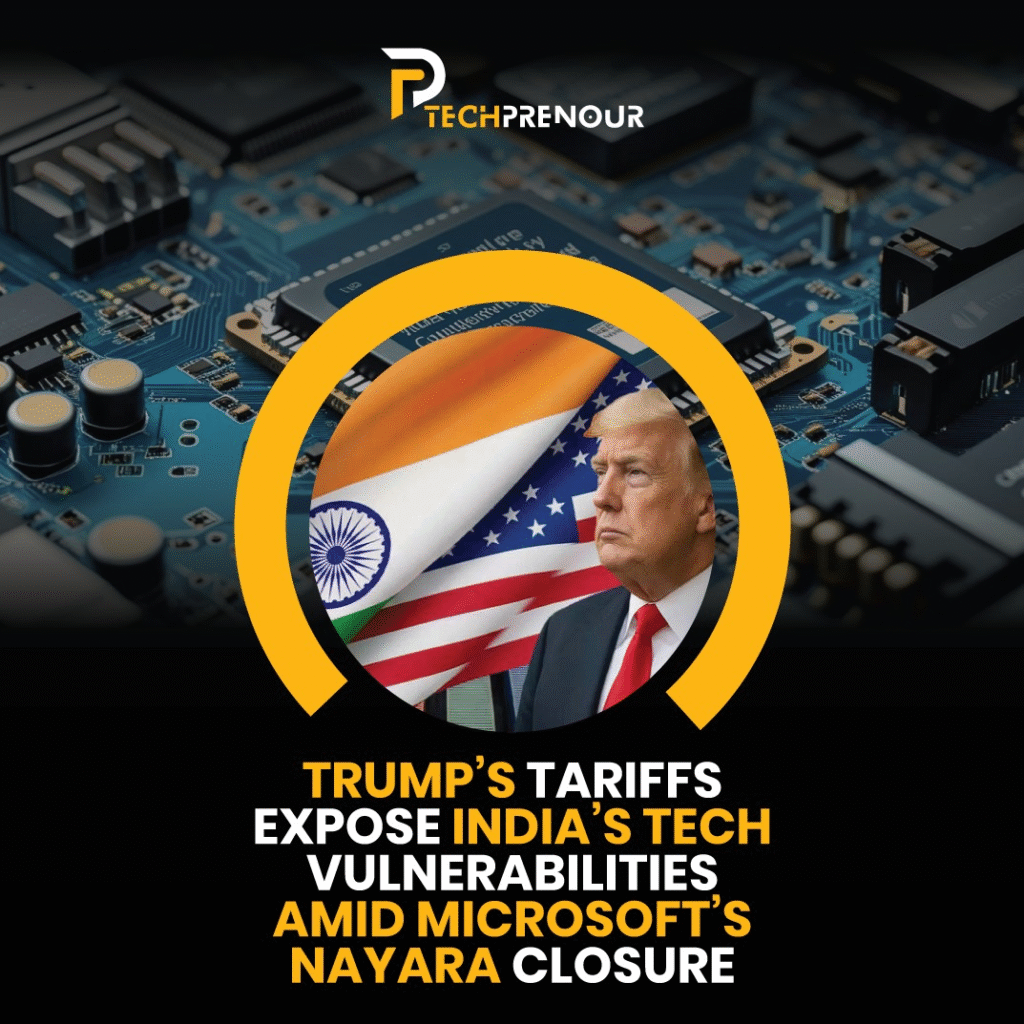Introduction
Recent U.S. tariffs imposed under the Trump administration have highlighted India’s tech vulnerabilities, particularly as Microsoft announces the closure of its Nayara project. This development underscores the challenges faced by India’s growing tech sector amid global trade tensions.
How Trump’s Tariffs Impact India’s Tech Sector
Rising Costs for Indian Tech Firms
The latest round of Trump tariffs has increased import costs for critical hardware and software components. Many Indian startups and IT firms rely on U.S.-made technology, and these tariffs could slow innovation and raise operational expenses.
Microsoft’s Nayara Closure: A Blow to India’s AI Ambitions
Microsoft’s decision to shut down its Nayara AI project in India has sent shockwaves through the industry. The project, aimed at advancing local AI capabilities, was seen as a key driver for India’s digital transformation. Its closure raises concerns about foreign investment stability in India’s tech ecosystem.
India’s Dependence on Foreign Tech
Vulnerabilities in Semiconductor Supply Chains
India still imports most of its semiconductors, leaving it exposed to global trade policies like Trump’s tariffs. Experts warn that without stronger domestic production, India’s tech growth could face long-term setbacks.
The Need for Self-Reliance
To mitigate risks, India must accelerate initiatives like “Make in India” and boost local R&D in critical technologies. Reducing reliance on foreign tech will be crucial in navigating future trade uncertainties.
Conclusion
The combination of Trump’s tariffs and Microsoft’s Nayara shutdown highlights India’s pressing need to strengthen its tech independence. Will India rise to the challenge and build a more resilient tech ecosystem? Share your thoughts in the comments!

